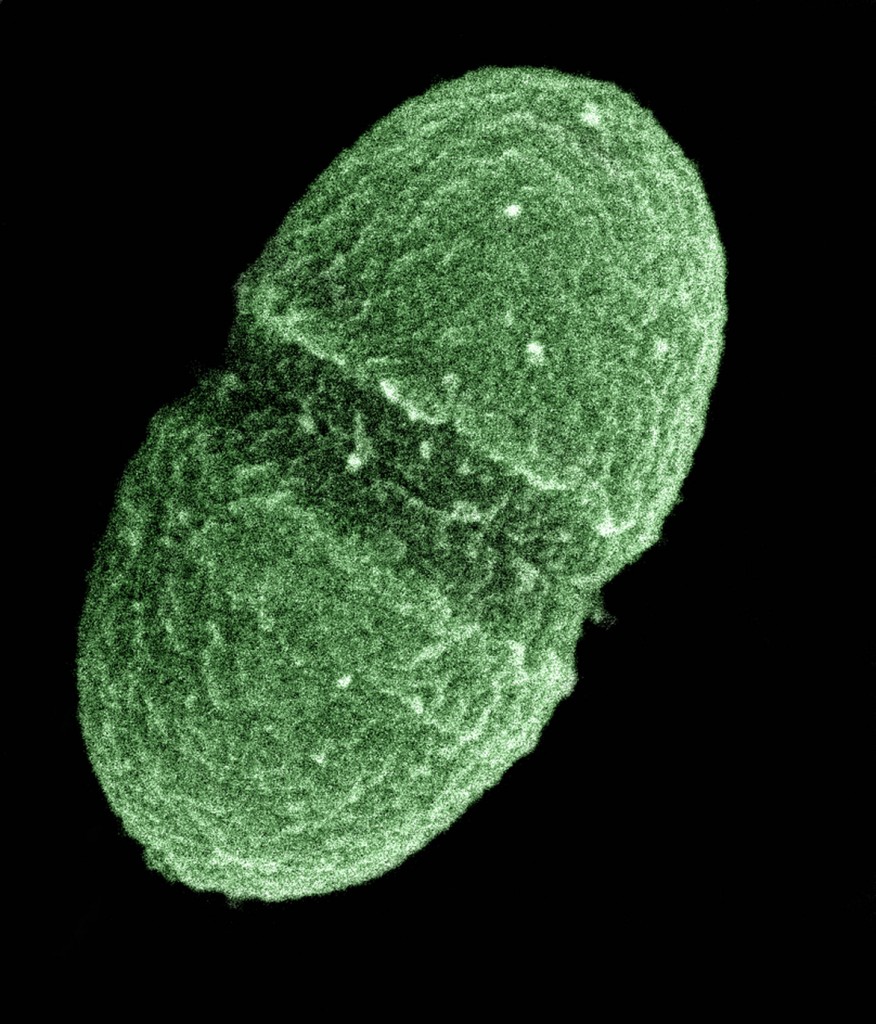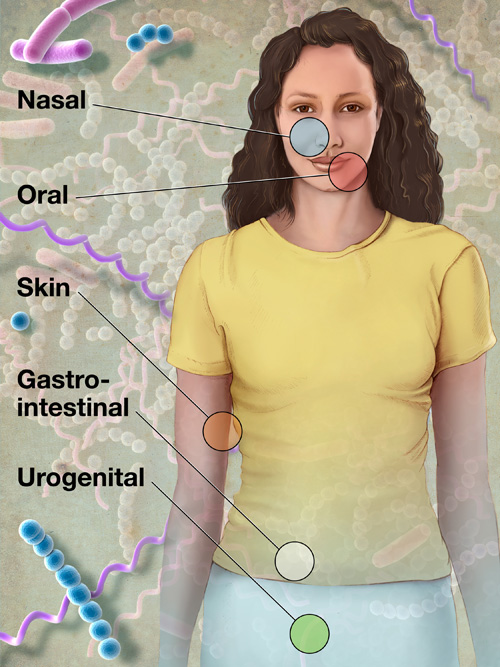Through my education, I was taught that microbes were bad. We used soap and antiseptic to get rid of them. Chemicals kept us safe from these unwanted, unseen bugs. Bacteria = bad.
But this is a naïve understanding of the environment we live in. Not only is our environment full of microbes – of which a very small number are potentially bad, in certain circumstances – but also WE are full of them.
The Human Microbiome Project has been busy mapping the microbial make-up of healthy humans, using genome sequencing to examine samples taken from 242 volunteers (you can read the press release here).
Consider this: the human body contains trillions of microbes, and they outnumber the cells of our body 10:1 (although because they are tiny, they make up about 1-3 kg of our body weight). They play a vital role in our health, for example, by helping us digest food we couldn’t otherwise digest. This population includes pathogens, which may under normal conditions co-exist happily with us.
So we need to reconsider the role of microbes. They are everywhere. They are important. Most of the time they are good, and a healthy population of good microbes keeps out the bad microbes. And the bad microbes aren’t always bad. It used to be so simple when all bugs were bad!
This would extend to the vineyard, where fungi and bacteria, as well as small soil animals, are everywhere, and are important members of the agroecosystem. Simplistic approaches – or interventions that inadvertently affect soil microbes – are going to have an effect on the way vines grow.
4 Comments on Thinking differently about microbes




The fact that we are only 10% human certainly explains some of my teenagers’ behaviour.
Very interesting work coming from the research group of Maria Victoria Moreno-Arribas and various collaborating groups on the effect of wine consumption on the composition and behaviour of the human intestinal flora. Taking the wine and health debate somewhere new. For those interested, “In vitro fermentation of grape seed flavan-3-ol fractions by human faecal microbiota: changes in microbial groups and phenolic metabolites” is a good anchor reference to google.
Jamie:
As the general scientific community delves into the exciting world of revising it’s understanding of the microbial world’s relationship to the body, so too the scientific-agricultural/viticultural community will soon realize that the biology of terroir is at least as important as the chemistry of terroir. For more than a hundred years this has been forgotten….
I think this is huge. Michael Pollan’s new book “Cooked” talked about this wrt the human gut and it was a huge Eureka for me. This artificial split between “us” and “them” (pointed out above by Jamie) has got us into all sorts of trouble. Ted: I completely agree. It is a fact that certain soil nutrients can only be made available to grapevine roots with the help of microbes living on these roots. How can anyone know this and doubt the importance of a healthy soil?